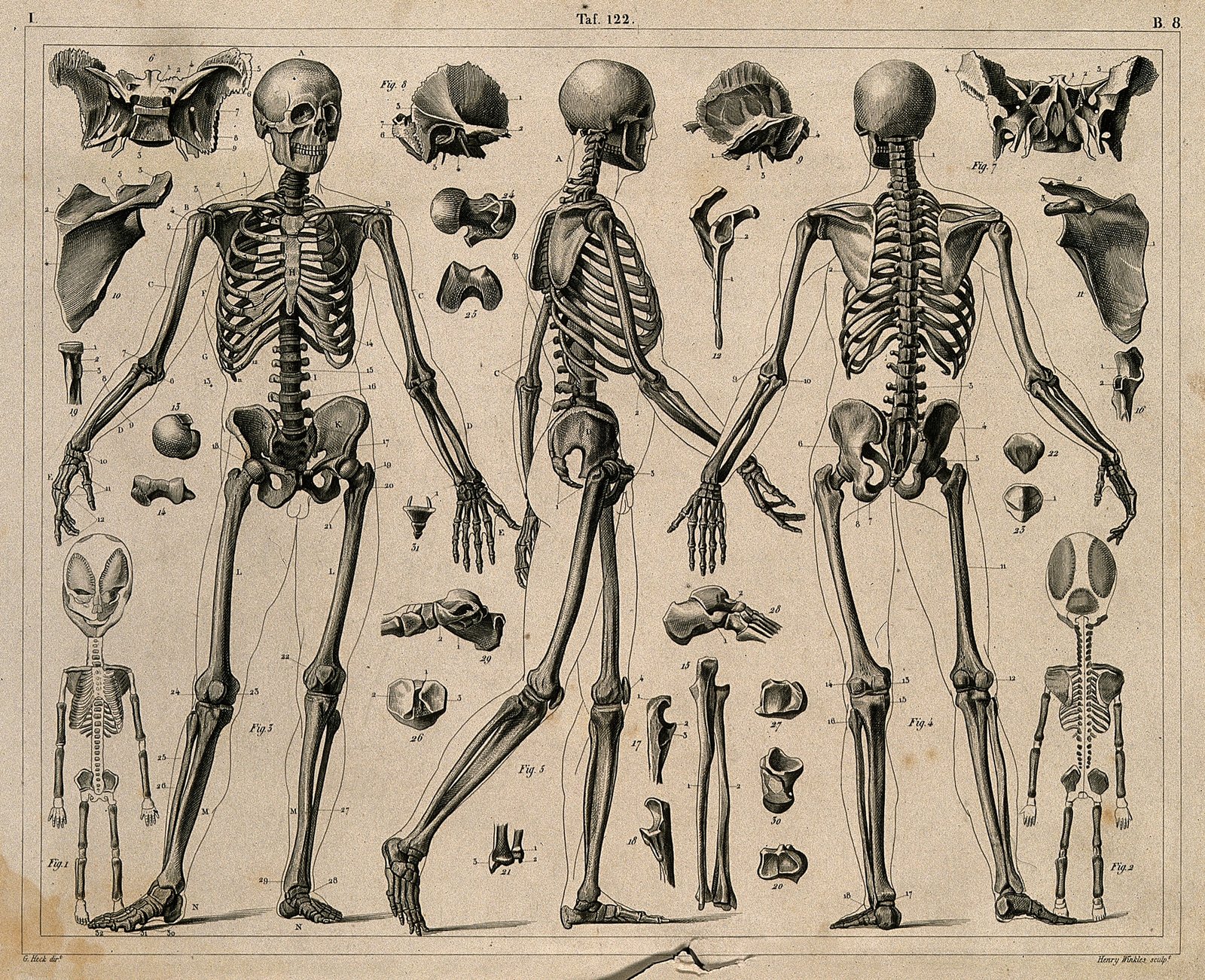Pregnancy and motherhood are miraculous phases in a woman’s life, where she embraces the divine responsibility of nurturing a tiny being within her. Throughout this awe-inspiring journey, mothers are often reminded to prioritize their health for the sake of their child’s wellbeing. And when it comes to essential nutrients, one cannot overlook the significance of calcium. Often associated with strong bones and teeth, calcium plays a pivotal role in supporting moms throughout this transformative chapter. As we delve into the depths of motherhood and its intricacies, let us explore the indispensable importance of calcium and truly fathom its extraordinary benefits.
Table of Contents
- The Power of Calcium for Maternal Health
- Understanding the Role of Calcium in Pregnancy
- Nourishing Your Bones and Your Baby’s Development
- Ensuring Sufficient Calcium Intake: Tips for Moms-to-Be
- Optimal Sources of Calcium for Strong and Healthy Moms
- Q&A
- Closing Remarks

The Power of Calcium for Maternal Health
The Role of Calcium in Maternal Health
When it comes to the health of pregnant women, one nutrient that plays a pivotal role is calcium. Calcium is not only essential for maintaining strong bones and teeth, but it also supports proper muscle function, nerve transmission, and blood clotting. During pregnancy, a woman’s calcium requirements increase significantly to support the growth and development of the baby’s skeleton and prevent deficiencies in the mother’s own body.
Benefits of Sufficient Calcium Intake During Pregnancy
1. Stronger Bones and Teeth: Adequate calcium intake during pregnancy ensures that both the mother and the developing baby have the necessary calcium stores for healthy bone and teeth formation.
2. Reduces the Risk of Hypertension: Research suggests that a sufficient calcium intake may help lower the risk of developing high blood pressure during pregnancy, reducing the incidence of complications like preeclampsia.
3. Prevents Osteoporosis: Pregnancy and breastfeeding can deplete a mother’s calcium reserves, so ensuring adequate intake can help protect against postpartum osteoporosis, a condition that weakens bones and increases the risk of fractures.
4. Enhances Nutrient Absorption: Calcium aids in the absorption of other vital nutrients like iron, magnesium, and vitamin D, allowing the mother’s body to efficiently use and benefit from these nutrients.
5. Supports Healthy Muscle and Nerve Function: Sufficient calcium intake promotes proper muscle contractions and nerve cell communication, reducing the likelihood of muscle cramps, spasms, and restless leg syndrome often experienced during pregnancy.
As maternal health is of utmost importance, it is crucial to prioritize a diet rich in calcium-rich foods such as dairy products, leafy greens, fortified cereals, and fish. Additionally, consulting with healthcare professionals to determine the appropriate calcium supplementation is recommended to ensure optimal maternal health throughout pregnancy and beyond.

Understanding the Role of Calcium in Pregnancy
The Importance of Calcium in Pregnancy
During pregnancy, calcium plays a vital role in both maternal and fetal health. It is essential for the development of the baby’s bones, teeth, muscles, and nerves. Calcium also helps in maintaining a healthy heart rhythm and promotes blood clotting, benefitting both the mother and the growing fetus.
Here are some key benefits of consuming an adequate amount of calcium during pregnancy:
- Bone Development: Calcium is crucial for the baby’s developing skeletal system. It ensures that the bones and teeth are strong and healthy, reducing the risk of skeletal abnormalities and tooth decay.
- Muscle Function: Calcium aids in proper muscle function for both the mother and the baby. It helps regulate muscle contractions, including those involved in labor and delivery.
- Nervous System Support: Calcium is necessary for the development of the baby’s nervous system. It ensures the transmission of nerve impulses and the growth of healthy nerves, which are essential for proper brain development.
- Prevention of Hypertensive Disorders: Sufficient calcium intake during pregnancy has been shown to decrease the risk of developing hypertensive disorders such as preeclampsia, a potentially dangerous condition characterized by high blood pressure.
To meet the recommended daily intake of calcium during pregnancy (approximately 1,000-1,300 mg), include calcium-rich foods in your diet. Good sources of calcium include milk, yogurt, cheese, leafy greens (such as spinach and kale), tofu, and fortified cereals. However, it is important to consult with a healthcare professional for personalized advice and to ensure that you are meeting your specific calcium needs during pregnancy.
Nourishing Your Bones and Your Baby’s Development
Proper nutrition plays a vital role in the development of both your bones and your baby’s growth. During pregnancy, your body needs additional nutrients to ensure that both you and your baby have the necessary support for optimal health. It’s essential to consume a well-balanced diet rich in calcium, vitamin D, and other essentials to nourish your bones and facilitate your baby’s growth.
Here are some key nutrients to include in your diet:
- Calcium: It is crucial for bone health and proper development of your baby’s skeleton. Include dairy products, leafy green vegetables, and fortified foods in your diet.
- Vitamin D: Works in conjunction with calcium to promote bone health. Get enough exposure to sunlight or consider vitamin D supplements, as it aids in calcium absorption.
- Protein: Important for the growth and repair of tissues in both you and your baby. Include lean meats, poultry, fish, legumes, and nuts in your meals.
- Folic acid: Essential for the development of your baby’s neural tube. Consume foods like fortified grains, leafy green vegetables, citrus fruits, and beans.
Remember to consult with your healthcare provider to determine the specific nutritional needs for you and your baby. They can provide personalized guidance and recommend any necessary supplements to ensure the health of your bones and your baby’s development.

Ensuring Sufficient Calcium Intake: Tips for Moms-to-Be
Moms-to-be, it’s crucial to prioritize your calcium intake during pregnancy to support the healthy development of your baby’s bones and teeth. Here are some practical tips to help you ensure you’re getting enough calcium:
1. Embrace Dairy Delights: Incorporate calcium-rich dairy products like milk, yogurt, and cheese into your daily diet. Choose low-fat or skim options to maintain a healthy balance.
2. Get Your Greens: Leafy green vegetables such as kale, spinach, and broccoli are excellent sources of calcium. Add them to your salads, soups, or stir-fries to boost your calcium intake.
3. Seas the Day: Seafood lovers can rejoice as fish like salmon, sardines, and shrimp are not only packed with omega-3 fatty acids but also high in calcium. Include these tasty treats in your weekly meal plan.
4. Fortify with Fortified Foods: Don’t overlook fortified foods like tofu, orange juice, and cereals. These are specially enriched with calcium to offer you a convenient way to meet your daily requirements.
5. Snack Smartly: Nuts, seeds, and dried fruits can make for calcium-rich snacks on the go. Top your yogurt with these wholesome nibbles, or grab a handful as a quick and nutritious pick-me-up.
Remember, it’s vital to consult with your healthcare provider to determine the appropriate calcium supplement, if necessary. By diversifying your diet and incorporating these calcium-rich options, you can ensure a strong foundation for your little one’s skeletal development.
Optimal Sources of Calcium for Strong and Healthy Moms
Calcium is an essential nutrient for every woman, especially for moms trying to stay strong and healthy. Including calcium-rich foods in your diet is crucial for maintaining bone density, supporting muscle function, and promoting overall well-being. Here are some optimal sources of calcium that can help you achieve your health goals:
1. Dairy Products: Incorporate milk, yogurt, and cheese into your everyday meals as they are excellent sources of calcium. Choose low-fat options for a healthier choice without compromising on calcium intake. Greek yogurt, in particular, is a great option due to its higher calcium content.
2. Leafy Greens: Boost your calcium intake by adding leafy greens like kale, spinach, and collard greens to your plate. These vibrant vegetables not only offer an abundance of calcium but are also rich in other nutrients like vitamins A, C, and K, making them a nutritional powerhouse.
3. Nuts and Seeds: Almonds, sesame seeds, and chia seeds are calcium-rich alternatives for those following a plant-based or dairy-free diet. You can add them to your salads, smoothies, or use them as toppings for various dishes to enjoy their nutty goodness and reap their calcium benefits.
4. Fortified Foods: Keep an eye out for fortified products like plant-based milk, fruit juices, cereals, and bread, which have been enriched with calcium. These convenient options can be a valuable addition to your diet, ensuring you meet your daily calcium requirements.
Remember, a balanced diet with a variety of calcium-rich foods along with regular exercise plays a key role in maintaining strong and healthy bones. Prioritize including these optimal sources of calcium in your diet to support your well-being and enjoy motherhood to the fullest.
Q&A
Why is calcium important for moms?
Calcium is crucial for moms as it helps build strong, healthy bones and teeth. It also plays a vital role in nerve function, muscle contractions, and blood clotting, ensuring overall well-being.
What are the benefits of calcium during pregnancy?
During pregnancy, calcium supports the development of the baby’s bones and teeth. It helps prevent the mother from losing bone density and may reduce the risk of high blood pressure and preterm birth.
How does calcium affect breastfeeding moms?
Calcium is necessary for milk production and plays a role in maintaining the mother’s bone health. Adequate calcium intake ensures the breast milk is rich in this essential mineral for the baby’s growth and development.
Can calcium help prevent postpartum depression?
While calcium alone cannot prevent postpartum depression, research suggests that low levels of calcium may contribute to mood swings and depression. A balanced diet that includes calcium-rich foods may help support overall mental well-being.
What are the top food sources of calcium?
Dairy products such as milk, cheese, and yogurt are excellent sources of calcium. Leafy greens like kale and broccoli, tofu, almonds, and fortified products like orange juice are also good options for getting enough calcium.
Can calcium supplements be beneficial?
Calcium supplements can be beneficial, especially if it’s challenging to obtain enough calcium from food alone. However, it’s important to consult a healthcare professional before starting any supplements to determine the right dosage for individual needs.
Are there any risks associated with excessive calcium intake?
While calcium is essential, consuming excessively high amounts through supplements may increase the risk of kidney stones or other health issues. It is advisable to follow the recommended daily allowance and not exceed the upper limit without medical supervision.
What are some calcium-rich meal ideas for moms?
Try a yogurt parfait with fresh berries and granola for breakfast, a spinach and feta cheese salad with a glass of milk for lunch, or a cheesy vegetable lasagna for dinner. Snack on calcium-fortified crackers or enjoy a small handful of almonds for an extra boost.
Closing Remarks
As we reach the end of this awe-inspiring journey through the importance of calcium for moms, let us take a moment to reflect on the incredible value of this vital mineral. From the very first moment of conception, calcium plays a magical role in nurturing the health and wellbeing of both mother and child. From the blossoming of bones and teeth to the regulation of hormones and the wondrous strength of the circulatory system, calcium is the unsung hero, tirelessly working behind the scenes.
Mothers, let this be a gentle reminder, a resounding call-to-action to prioritize calcium in your daily routine. Embrace the wealth of nature’s offerings such as dairy products, leafy greens, and nuts that lay before you, brimming with this precious elixir of life. Allow calcium to weave its nurturing embrace throughout your body, fortifying your bones, relieving muscle cramps, and alleviating those pesky pregnancy-induced sleepless nights.
But let us not forget the importance of balance, for like the delicate interplay of a musical symphony, the harmony of nutrients is equally crucial. Supporting your body with other essential minerals and vitamins, alongside exercise and that precious elixir of hydration, will enable you to flourish with vitality and grace.
As we bid adieu, dear mothers, may this knowledge empower you to honor and cherish the remarkable vessel that is your body. Let calcium be the momentum that propels you forward on this beautiful journey of motherhood. Embrace the calcium-rich treasures Mother Nature has bestowed upon humanity, and let it be the foundation for your strength, resilience, and unconditional love.
Remember, you are the architects of tomorrow, shaping the world through your unwavering love and devotion. Prioritize yourself, nourish your bones, and embrace the boundless potential that awaits. For you are not just mothers; you are the embodiment of life itself.
As an affiliate, my content may feature links to products I personally use and recommend. By taking action, like subscribing or making a purchase, you’ll be supporting my work and fueling my taco cravings at the same time. Win-win, right?
Want to read more? Check out our Affiliate Disclosure page.